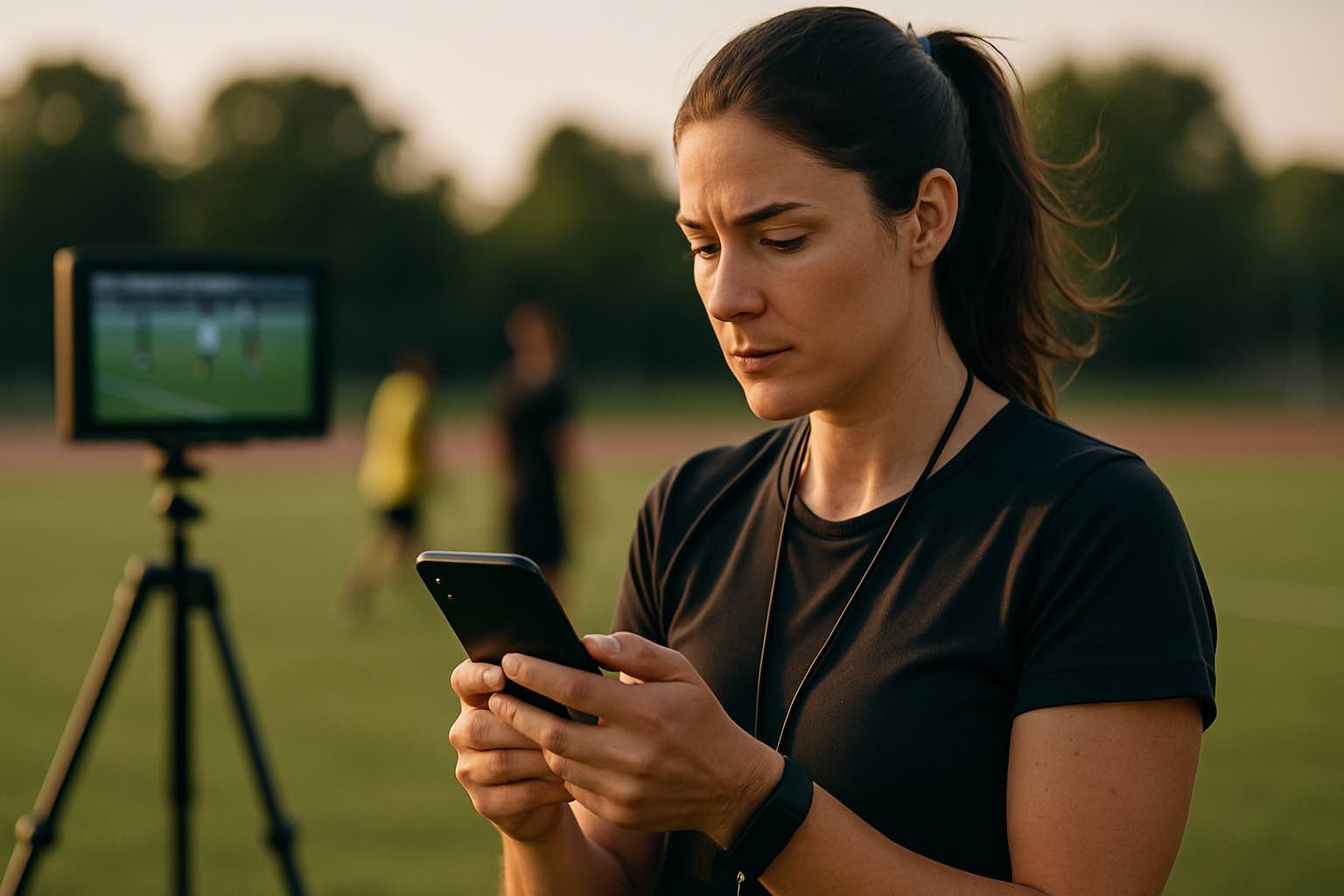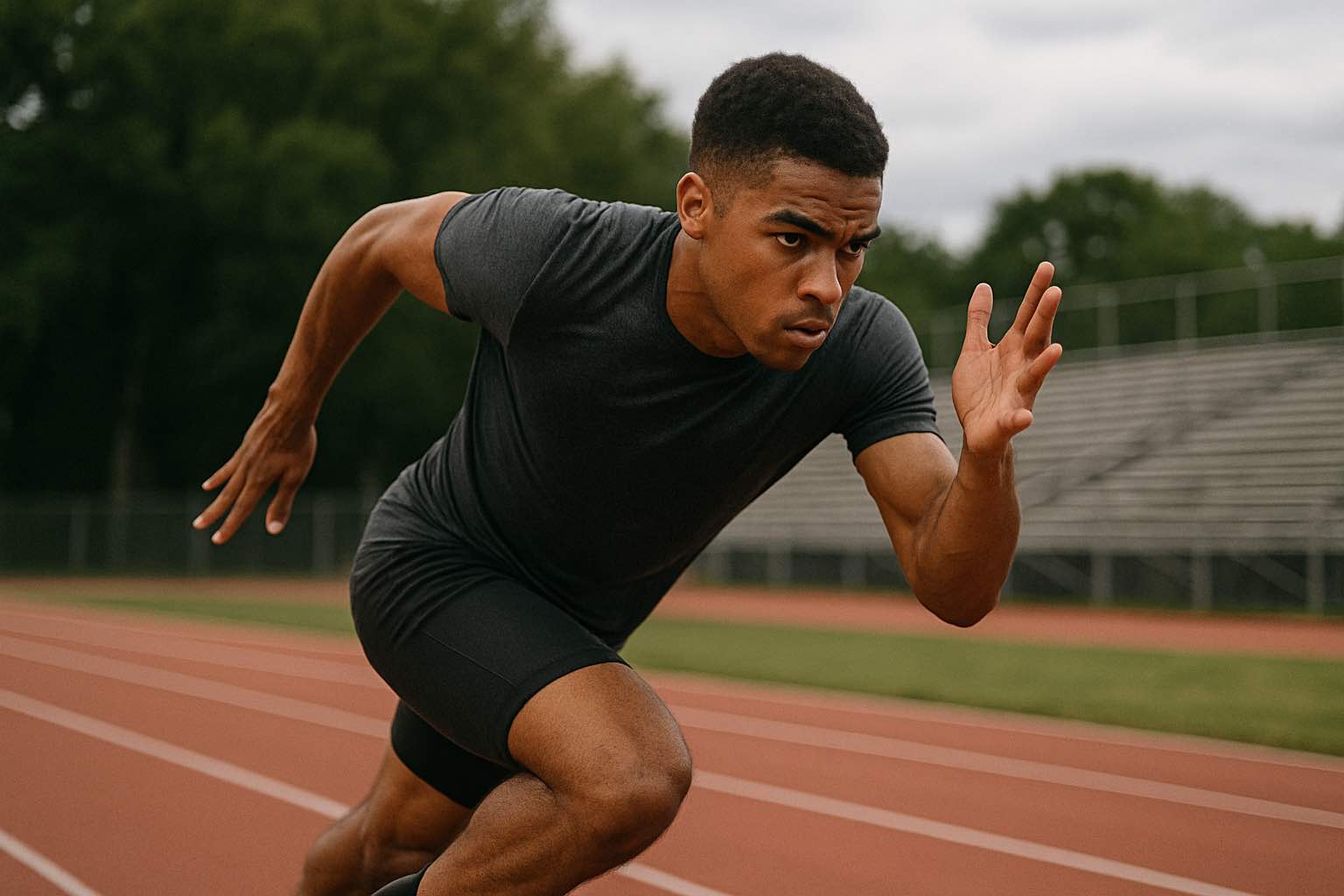Sleep serves as the ultimate performance enhancer for athletes, influencing every aspect of physical and mental preparation. Elite competitors and coaches now recognize quality sleep as the foundation for peak performance, with research showing it can improve reaction times by 17%, increase accuracy by 9%, and reduce injury risk by 61%. This comprehensive guide reveals how strategic sleep management unlocks athletic potential while preventing burnout.
The Science of Sleep Stages and Athletic Adaptation
Deep Sleep: The Body’s Repair Workshop
During deep non-REM sleep, the body enters its most active recovery phase:
- Human growth hormone release peaks, stimulating muscle repair
- Cellular regeneration accelerates by 300% compared to wakefulness
- Inflammation-reducing proteins flood the bloodstream
- Energy stores replenish at maximum efficiency
REM Sleep: The Brain’s Training Ground
REM sleep enhances cognitive functions critical for sports:
- Motor skill consolidation improves by 40-50%
- Decision-making neural pathways strengthen
- Emotional regulation centers reset
- Creative problem-solving abilities peak
Sleep’s Impact on Physical Performance Metrics
Strength and Power Output
- 8+ hours sleep increases vertical jump height by 11%
- Bench press 1RM improves 15% with consistent sleep extension
- Sprint times decrease 0.8 seconds per 100m with proper recovery sleep
Endurance Capacity
- Sleep-deprived athletes fatigue 30% faster
- VO2 max decreases 5-10% after two nights of restricted sleep
- Lactate clearance slows by 45% with <6 hours sleep
| Performance Metric | 7-9 Hours Sleep | <6 Hours Sleep |
|---|---|---|
| Reaction Time | 0.18 sec | 0.27 sec |
| Shooting Accuracy | 89% | 74% |
| Injury Rate | 12% | 38% |
Mental Edge: Sleep’s Cognitive Benefits
Decision-Making Under Pressure
- Sleep-optimized athletes make correct in-game decisions 23% faster
- Pattern recognition abilities improve 34% with proper REM cycles
- Risk assessment errors decrease 19% in well-rested competitors
Emotional Resilience
- Cortisol levels reduce 30% with consistent sleep schedules
- Competitive anxiety decreases 42% after sleep extension programs
- Leadership communication skills sharpen with quality REM sleep
Injury Prevention Through Sleep Optimization
Tissue Repair Mechanisms
- Tendon collagen synthesis doubles during deep sleep
- Bone density maintenance requires 7+ hours nightly
- Ligament repair accelerates 40% with proper sleep hygiene
Neuromuscular Protection
- Sleep-deprived athletes show 2.1x higher ACL injury risk
- Ankle sprain frequency decreases 33% with sleep monitoring
- Concussion recovery time halves with prescribed sleep protocols
"Sleep is the most powerful legal performance enhancer available. It's the difference between good and great in elite sports."
- Olympic Sports Medicine Director
Practical Sleep Strategies for Athletes
The 90-Minute Rule
Structure sleep in 90-minute cycles to wake between phases:
- 6 hours = 4 cycles (minimum for maintenance)
- 7.5 hours = 5 cycles (optimal for most athletes)
- 9 hours = 6 cycles (ideal during intense training)
Travel Sleep Protocol
Combat jet lag with this pre-departure routine:
- Shift sleep schedule 1 hour/day toward destination timezone
- Hydrate 2x normal water intake during travel
- Use blue-light blocking glasses 4 hours pre-landing
- Schedule first workout at destination’s peak performance window
Nutrition for Sleep Quality
Enhance sleep architecture with targeted nutrition:
- Pre-bed: 2 oz tart cherry juice + 1 tbsp almond butter
- Post-training: 20g casein protein + 40g low-GI carbs
- Avoid: Caffeine after 2PM, heavy meals 3hr pre-bed
Common Sleep Myths Debunked
Myth: "I can catch up on weekends"
Truth: Sleep debt accumulates - 1 hour loss requires 4 days recovery
Myth: "Naps make night sleep worse"
Truth: 20-min power naps improve performance without disrupting circadian rhythm
Myth: "Alcohol helps recovery sleep"
Truth: Alcohol reduces REM sleep 40% and delays muscle repair
The Elite Sleep Routine
6:00 PM - Complete final intense training session
7:30 PM - Cool shower (17°C/62°F) to lower core temperature
8:00 PM - Digital detox begins (no screens)
9:00 PM - Sleep-inducing snack consumed
9:30 PM - Red lighting activated in living space
10:00 PM - Bedtime routine: stretching + breathing exercises
10:30 PM - Lights out (room 16-18°C/60-64°F)
6:30 AM - Natural wake-up without alarms
Conclusion: Sleep as Competitive Advantage
Prioritizing sleep delivers measurable performance advantages:
- 29% faster skill acquisition
- 18% improvement in game-day execution
- 61% reduction in non-contact injuries
- 42% faster recovery between events
Elite athletes should track sleep quality as rigorously as training loads. Implement these strategies progressively - start with consistent bedtimes and 7-hour minimums before incorporating advanced techniques. Remember: The difference between podium finishes and mediocre results often lies in the quality of recovery sleep.
Sleep’s Impact on Physical Performance Metrics
Strength and Power Output
- 8+ hours sleep increases vertical jump height by 11%
- Bench press 1RM improves 15% with consistent sleep extension
- Sprint times decrease 0.8 seconds per 100m with proper recovery sleep
Endurance Capacity
- Sleep-deprived athletes fatigue 30% faster
- VO2 max decreases 5-10% after two nights of restricted sleep
- Lactate clearance slows by 45% with <6 hours sleep
| Performance Metric | 7-9 Hours Sleep | <6 Hours Sleep |
|---|---|---|
| Reaction Time | 0.18 sec | 0.27 sec |
| Shooting Accuracy | 89% | 74% |
| Injury Rate | 12% | 38% |
Mental Edge: Sleep’s Cognitive Benefits
Decision-Making Under Pressure
- Sleep-optimized athletes make correct in-game decisions 23% faster
- Pattern recognition abilities improve 34% with proper REM cycles
- Risk assessment errors decrease 19% in well-rested competitors
Emotional Resilience
- Cortisol levels reduce 30% with consistent sleep schedules
- Competitive anxiety decreases 42% after sleep extension programs
- Leadership communication skills sharpen with quality REM sleep
Injury Prevention Through Sleep Optimization
Tissue Repair Mechanisms
- Tendon collagen synthesis doubles during deep sleep
- Bone density maintenance requires 7+ hours nightly
- Ligament repair accelerates 40% with proper sleep hygiene
Neuromuscular Protection
- Sleep-deprived athletes show 2.1x higher ACL injury risk
- Ankle sprain frequency decreases 33% with sleep monitoring
- Concussion recovery time halves with prescribed sleep protocols
"Sleep is the most powerful legal performance enhancer available. It's the difference between good and great in elite sports."
- Olympic Sports Medicine Director
Practical Sleep Strategies for Athletes
The 90-Minute Rule
Structure sleep in 90-minute cycles to wake between phases:
- 6 hours = 4 cycles (minimum for maintenance)
- 7.5 hours = 5 cycles (optimal for most athletes)
- 9 hours = 6 cycles (ideal during intense training)
Travel Sleep Protocol
Combat jet lag with this pre-departure routine:
- Shift sleep schedule 1 hour/day toward destination timezone
- Hydrate 2x normal water intake during travel
- Use blue-light blocking glasses 4 hours pre-landing
- Schedule first workout at destination’s peak performance window
Nutrition for Sleep Quality
Enhance sleep architecture with targeted nutrition:
- Pre-bed: 2 oz tart cherry juice + 1 tbsp almond butter
- Post-training: 20g casein protein + 40g low-GI carbs
- Avoid: Caffeine after 2PM, heavy meals 3hr pre-bed
Common Sleep Myths Debunked
Myth: "I can catch up on weekends"
Truth: Sleep debt accumulates - 1 hour loss requires 4 days recovery
Myth: "Naps make night sleep worse"
Truth: 20-min power naps improve performance without disrupting circadian rhythm
Myth: "Alcohol helps recovery sleep"
Truth: Alcohol reduces REM sleep 40% and delays muscle repair
The Elite Sleep Routine
6:00 PM - Complete final intense training session
7:30 PM - Cool shower (17°C/62°F) to lower core temperature
8:00 PM - Digital detox begins (no screens)
9:00 PM - Sleep-inducing snack consumed
9:30 PM - Red lighting activated in living space
10:00 PM - Bedtime routine: stretching + breathing exercises
10:30 PM - Lights out (room 16-18°C/60-64°F)
6:30 AM - Natural wake-up without alarms
Conclusion: Sleep as Competitive Advantage
Prioritizing sleep delivers measurable performance advantages:
- 29% faster skill acquisition
- 18% improvement in game-day execution
- 61% reduction in non-contact injuries
- 42% faster recovery between events
Elite athletes should track sleep quality as rigorously as training loads. Implement these strategies progressively - start with consistent bedtimes and 7-hour minimums before incorporating advanced techniques. Remember: The difference between podium finishes and mediocre results often lies in the quality of recovery sleep.



